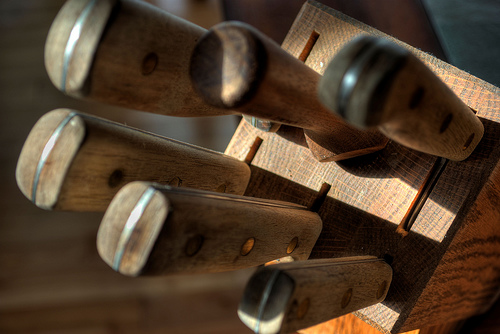
The sharpness of your kitchen knives isn't just a convenience issue, it's a safety issue. A sharp knife is a safe knife. This may seem counterintuitive to some, but think about how much more pressure you have to put on a dull knife in order to get it to cut anything. And the harder you are bearing down on the knife, the more likely it is that it will slip.
Just as important as sharpening your knife is using good practices to keep it sharp. Never use your kitchen knives to cut things that are not food. Need to open that Amazon package? Find a pair of scissors. And don't let them jostle around in a drawer with a lot of other metal implements, or the edge can get chipped. Either use a knife block, or store the knives where they won't knock against something else. And if you want to scrape things off a cutting board, flip your knife over so that you scrape with the top, not the blade side.
There are a lot of knife-sharpening gadgets on the market. Most of these will work reasonably well as long as you use them regularly. But be warned that many of them can leave scratches on your blade. This is a cosmetic issue more than anything else. If you have expensive knives and you want to keep them looking good, you will either want to learn how to sharpen your own knives with a regular sharpening stone, or take them to a professional sharpener.
Don't let all the talk about angles and grit levels scare you. Basically, any amount of sharpening that you do on your knives is better than never sharpening them. A lot of people are put off by how technical people get about knife sharpening, but it doesn't have to be that complicated. Even the cheapest knife sharpening gadget is probably better than what most people do, which is "nothing"!
Image courtesy Flickr/k.landerhorm

1 comments